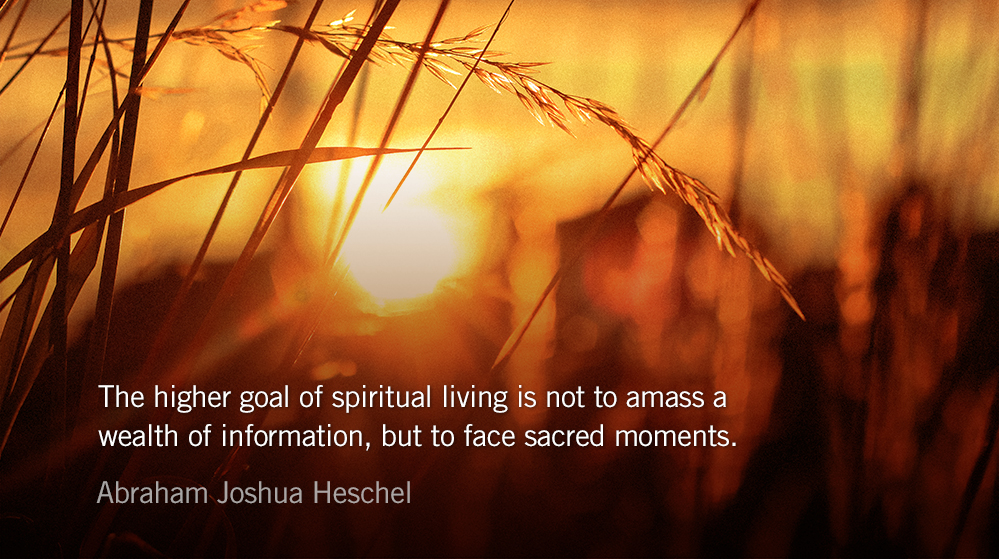“I have been thinking of something that stifles thanksgiving,” wrote Elisabeth Elliot almost 30 years ago—and, though it was neither politics nor family struggles, her insight cuts right to the heart: “It is the spirit of greed—the greed of doing, being, and having.” Elliot explains:
When Satan came to tempt Jesus in the wilderness, his bait was intended to inspire the lust to do more than the Father meant for Him to do—to go farther, demonstrate more power, and act more dramatically.
This lifestyle of greed metastasizes in every corner of our soul—often expressing itself as we think of the worldly things for which we are thankful. But what if Thanksgiving was defined not by what we have accumulated but by rest from the demands of commerce and striving? Elliot continues:
The enemy comes to us in these days of frantic doing. We are ceaselessly summoned to activities: social, political, educational, athletic, and—yes—spiritual. Our “self-image” (deplorable word!) is dependent not on quiet and hidden “Do this for My sake,” but on the list the world hands us of what is “important.” It is a long list, and it is both foolish and impossible. If we fall for it, we neglect the short list.
Temptation comes also in the form of being. The snake in the garden struck at Eve with the promise of being something which had not been given. If she would eat the fruit forbidden to her, she could “upgrade her lifestyle” and become like God. She inferred that this was her right, and that God meant to cheat her of this.
Then there is the greed of having. There is no end to the spending, getting, having. We are insatiable consumers, dead-set on competing, upgrading, showing off (“If you’ve got it, flaunt it”). We simply cannot bear to miss something others deem necessary.
So the world ruins the peace and simplicity God would give us. Contentment with what He has chosen for us dissolves, along with godliness, while, instead of giving thanks, we lust and wail, teaching our children to lust and wail too.
Elliot’s soft rebuke reminds me of David Foster Wallace’s This is Water. Wallace, like Elliot, demands we question the “normal” and expand our thirst for what is possible when we give up the relentless pursuit of self.
I was also reminded of Abraham Joshua Heschel’s work The Sabbath. The rabbi parses the spiritual life in the realms of space and time—drawing us beyond the materialism that defines our modern world. “The solution of mankind’s most vexing problem will not be found in renouncing technical civilization, but in attaining some degree of independence of it,” Heschel challenges. He explains:
Technical civilization is man’s conquest of space. It is a triumph frequently achieved by sacrificing an essential ingredient of existence, namely, time. In technical civilization, we expend time to gain space. To enhance our power in the world of space is our main objective. Yet to have more does not mean to be more. The power we attain in the world of space terminates abruptly at the borderline of time. But time is the heart of existence.
The higher goal of spiritual living is not to amass a wealth of information, but to face sacred moments. In a religious experience, for example, it is not a thing that imposes itself on man but a spiritual presence. What is retained in the soul is the moment of insight rather than the place where the act came to pass. A moment of insight is a fortune, transporting us beyond the confines of measured time.
So as we prepare to give thanks this week, may we find space. In the midst of travel, of difficult conversations, of the joys of friendship and family—may we find the holy moments where we can experience the power of the divine.
In this way we will experience Thanksgiving as an extension of eternity—a taste of the holy rest that awaits us. “Unless one learns how to relish the taste of Sabbath,” Heschel cautions, “one will be unable to enjoy the taste of eternity in the world to come.”
Weekend Reading List
- A New Thanksgiving. Elisabeth Elliot for The Elisabeth Elliot Newsletter (Nov/Dec 1987).
- Shabbat as a Sanctuary in Time. Abraham Joshua Heschel on My Jewish Learning.
- This is Water. David Foster Wallace for the 2005 Kenyon Commencement Address.
- How to Argue Fairly and Without Rancor (Hello, Thanksgiving!). Christine Hauser for The New York Times.
Today’s Reading
Amos 7 (Listen – 2:45)
Luke 2 (Listen – 6:11)
This Weekend’s Readings
Amos 8 (Listen – 2:16) Luke 3 (Listen – 5:24)
Amos 9 (Listen – 3:08) Luke 4 (Listen – 5:27)






